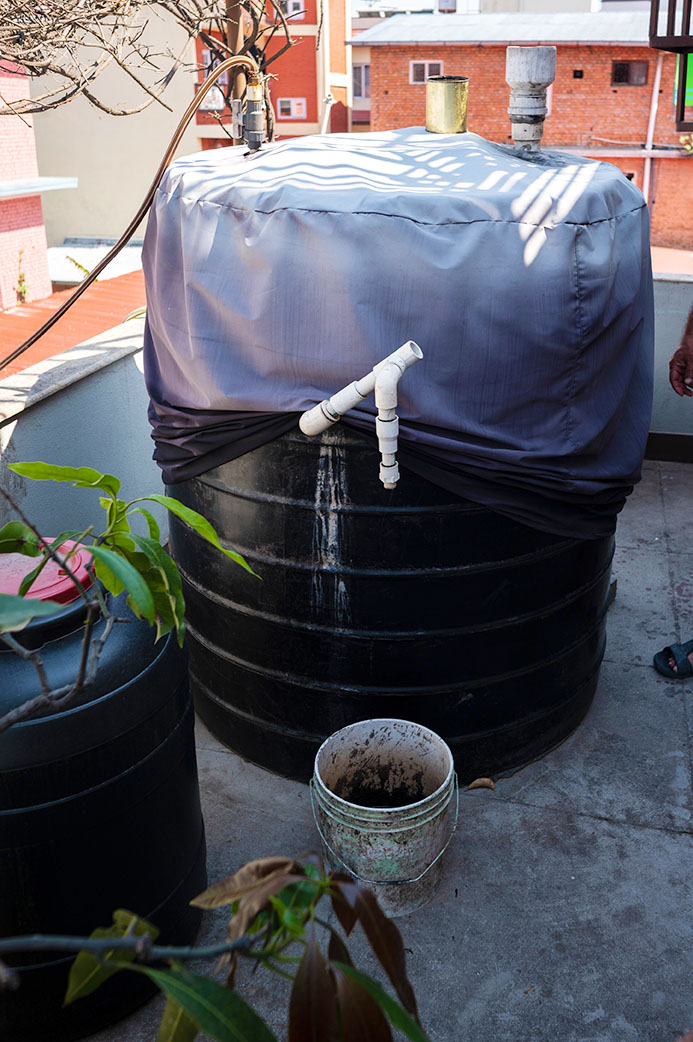A small scale home based anaerobic digestion system designed as a storage for organic wastes which produces useful bio gas. The purpose of a home bio digester is to provide a sustainable solution for managing of organic waste generated within a household.
By diverting these organic materials from traditional waste disposal methods, such as land filling or incineration, a bio-digester helps reduce environmental pollution and harnesses the energy potential of the waste.
Anaerobic digestion/decomposition is a natural process through which bacteria breaks down organic matter such as food wastes, waste waters and bio-solids in the absence of oxygen. The leftover material, digestate or bio fertilizer is rich in nutrients and can be used as organic fertilizer.

Working Principle
The functional operation of a home Bio digester involves the following steps:
-
Collection of organic waste :
Used organic waste materials such as food residues, scrap and plant wastes are collected and added to the Bio digester. -
Anaerobic digestion :
The Bio digester creates an oxygen-free environment where microorganisms break down theorganic waste through anaerobic digestion. This process produces biogas and digestate. -
Biogas production :
Biogas is a mixture of methane and carbon dioxide, which can be captured and used as a source of renewable energy. It can be utilized for cooking, heating, or even generating electricity. -
Digestate production :
The leftover material after anaerobic digestion, known as digestate or biofertilizer, is rich in nutrients and can be used as an organic fertilizer for plants.

Total Cost
- 1000 liter capacity tank
- Specialized gas cooker
- All the pipings and fittings

